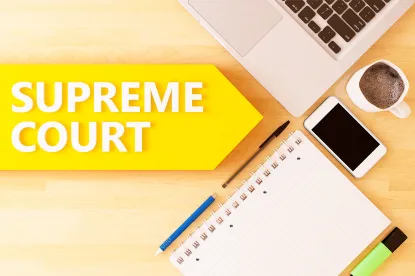The Supreme Court placed two Indian law cases on its docket for the October 2021 term.
In Ysleta del Sur Pueblo v. Texas (20-493), the Supreme Court will determine whether legislation that restored federal recognition to two Tribes permits the State of Texas to regulate gaming activities on the Tribes’ land. The restoration legislation contained a provision stating that “[a]ll gaming activities which are prohibited by [Texas] are hereby prohibited on the reservation[.]” Because Texas regulates bingo but does not prohibit it, the Tribe asserts that it therefore retains full authority to set the terms of its bingo games and need not comply with Texas’ regulations. Texas argues that the Tribe must submit to Texas’ regulations. The Fifth Circuit sided with Texas, holding that Texas’ regulations became surrogate federal law under the restoration legislation. The federal government filed a brief supporting the Tribe and urging the Supreme Court to take the case. The case will directly affect the two Tribes subject to the restoration legislation, but there may be broader implications depending on whether the Supreme Court accepts or rejects the idea that state regulations may, under certain circumstances, become surrogate federal law that Tribes must follow.
In Denezpi v. United States (20-7622), the Supreme Court will decide whether a Tribal member convicted for assaulting another Tribal member on trust land in a “CFR Court” can later be tried for the same conduct in U.S. District Court. The defendant was charged with serious offenses in the Court of Indian Offenses of the Ute Mountain Ute Agency. Unlike a Tribal court, Courts of Indian Offenses (or “CFR Courts”—so called because they are authorized by the Code of Federal Regulations) are created by the Bureau of Indian Affairs to administer criminal justice for Tribes lacking their own courts. The CFR Courts may prosecute violations of Tribal ordinances and other offenses listed in the regulations. The defendant was charged with three offenses in the CFR Court and ultimately pled guilty to one count and received a 140-day sentence. Six months later, the defendant was indicted in U.S. District Court. The defendant asserted his prosecution was barred by the double jeopardy clause of the U.S. Constitution. The lower federal courts, however, concluded that the CFR Court was not exercising the sovereignty of the United States, but was instead exercising the sovereign powers of the Ute Mountain Tribe. Under the long-established “dual sovereignty” doctrine, the federal government may prosecute an American Indian after a Tribal prosecution for the same act. The same rule generally permits the federal government to charge an individual with a federal crime even after that person has been tried for the same conduct in state court. The key question for the Supreme Court to decide is: whose sovereignty is the CFR Court exercising? The answer will affect the five existing CFR Courts that serve more than a dozen Tribes.
The Supreme Court has not yet decided whether it will hear an appeal in Haaland v. Brackeen. In that case the Fifth Circuit held several provisions of the Indian Child Welfare Act (“ICWA”) to be unconstitutional. If the Supreme Court agrees to hear the case it will likely become the most significant Indian law case of the term.




 />i
/>i

